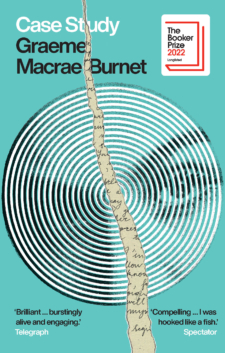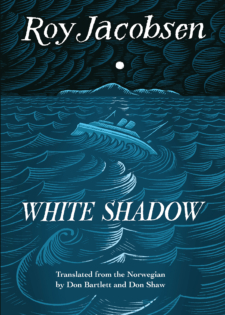Description
From the Booker-nominated author of Case Study and His Bloody Project comes the next adventure of Inspector Gorski.
In the unremarkable French town of Saint-Louis, a mysterious stranger stalks the streets; an elderly woman believes her son is planning to kill her; a prominent businessman drops dead. Between visits to the town’s drinking establishments, Chief Inspector Georges Gorski ponders what connections, if any, exist between these events, all while grappling with his own domestic and existential demons.
With his signature virtuosity, in which literary sleight-of-hand meets piercing insight into human nature, Graeme Macrae Burnet punctures the respectable bourgeois façade of small-town life and unspools a spellbinding riddle that blurs the boundaries between suspect, investigator, writer, and reader.
Praise for A Case of Matricide
“The multiple Booker-nominated Scottish novelist has made a project of undermining the certainties and assumptions we bring to fiction by blurring truth and artifice. In this third book featuring the melancholic, insecure Inspector Gorski, the latter finds himself drawn to the case of a woman in a small French town who’s convinced that her novelist son is plotting her demise.”
—Emily Donaldson, Globe and Mail
“You can gulp down A Case of Matricide in one sitting, as the prose style seems to demand. But linger over Burnet’s novel, and its real pleasures emerge.”
—Sarah Weinman, New York Times
“Blasé chief inspector Gorski, of Saint-Louis, France, embarks on a bungled relationship and tangles with a novelist whose mother is afraid he’s going to kill her in this marvelously meta mystery from Booker-nominated Graeme Macrae Burnet.”
—Vanity Fair
“Burnet’s trilogy concludes with a mystery about what we put up with in mystery narratives . . . It’s smart, quirky and fun.”
—Bethanne Patrick, Los Angeles Times
“A remarkable crime trilogy of doublings and disappearance . . . These are crime novels in which identities are unstable, evidence is slippery and solutions are obscure.”
—Nicholas Clee, Times Literary Supplement
“[T]his quirky blend of psychological thriller and smalltown life is both thought-provoking and entirely convincing.”
—Laura Wilson, Guardian
“If you read thrillers for the resolution of a pacy, action-filled story, this book is not for you—and its action all takes place off-piste. If, however, you read for acuity of observation recounted with a knack for pithy aphorism, then few writers can rival Burnet.”
—Andrew Rosenheim, The Spectator
“A perfect conclusion to the trilogy.”
—The Times
“The most ‘action-packed’ of the trio, it [A Case of Matricide] is a master class in characterisation. Unnervingly dark—and at times, surprisingly humorous—it took its toll on the author.”
—Sunday Post
“A Case of Matricide is very engaging, belonging to the same category of those Burnet coyly says it doesn’t equal, such as Simenon’s existentialist mysteries.”
—Walter Cummins, California Review of Books
“The story in A Case of Matricide is intricately woven, with layers of significance throughout . . . Graeme Macrae Burnet has elevated the detective novel to incredible heights.”
—Luke Francis Beirne, Miramichi Reader
“[Graeme Macrae Burnet’s] books engross as much as they tease, setting up questions about authorship and artifice, but never at the expense of a compelling narrative . . . A Case of Matricide ends the trilogy on a high, bringing to a satisfying close the saga of Georges Gorski, the town’s chief of police.”
—The Scotland Herald
“A Case of Matricide is a probing metaphysical novel that asks whether an act that is both selfish and merciful is wrong or right and whether, therefore, its consequences are a punishment or a reward.”
—Aimee Jodoin, Foreword Reviews
“[A Case of Matricide] serves up a tantalizing blend of psychological thrills and small-town life . . . the novel delivers a convincing depiction of bureaucratic and provincial rot. Fans of the series will be pleased.”
—Publishers Weekly
“Graeme Macrae Burnet returns with the distinguished final book in the Inspector Gorski trilogy, which is centered on a Frenchman with the job of Simenon’s Maigret and the dimensionality of a Proust character . . . All should agree that the book is a filigreed character study with the feel of a slow-boil noir.”
—Shelf Awareness
Praise for Graeme Macrae Burnet
“Case Study has a lot in common with the novels of Vladimir Nabokov and Roberto Bolaño, in which invented characters pass through tumultuous episodes of literary history that never quite happened, though it seems as if they should have . . . Case Study is a diverting novel, overflowing with clever plays on and inversions of tropes of English intellectual and social life during the postwar decades.”
—New York Times
“A stylish, atmospheric mystery with a startling twist . . . [The Disappearance of Adèle Bedeau] satisfies like Simenon and surprises like Ruth Rendell. I can’t give it any higher praise.”
—NPR
“[The Accident on the A35] elevates what starts as a Simenon pastiche into something dazzling.”
—Publishers Weekly (starred review)
“A mystery story—or is it?—that takes us into the heart of the psychoanalytical consulting room. Or does it? Interleaving a biography of radical ’60s ‘untherapist’ Collins Braithwaite with the notebooks of his patient ‘Rebecca,’ a young woman seeking answers about the death of her sister, ‘GMB’ presents a forensic, elusive and mordantly funny text(s) layered with questions about authenticity and the self.”
—2022 Booker Prize Judges
“A twisting and often wickedly humorous work of crime fiction that meditates on the nature of sanity, identity and truth itself.”
—Gordon Burn Prize Jury Citation
“With its layers of imposture and unreliability, the novel suggests that our personhood is far more malleable than we believe.”
—New Yorker
“Macrae’s novel works on various levels. It is an elaborate, mind-bending guessing game; it is a blackly comic and quietly moving study of a nervous breakdown; and it is a captivating portrait of an egomaniac . . . Macrae has reliably delivered another work of fiendish fun.”
—Minneapolis Star Tribune
“Burnet is the ultimate unreliable narrator, and Case Study serves as a worthy addition to his oeuvre.”
—Chicago Review of Books









